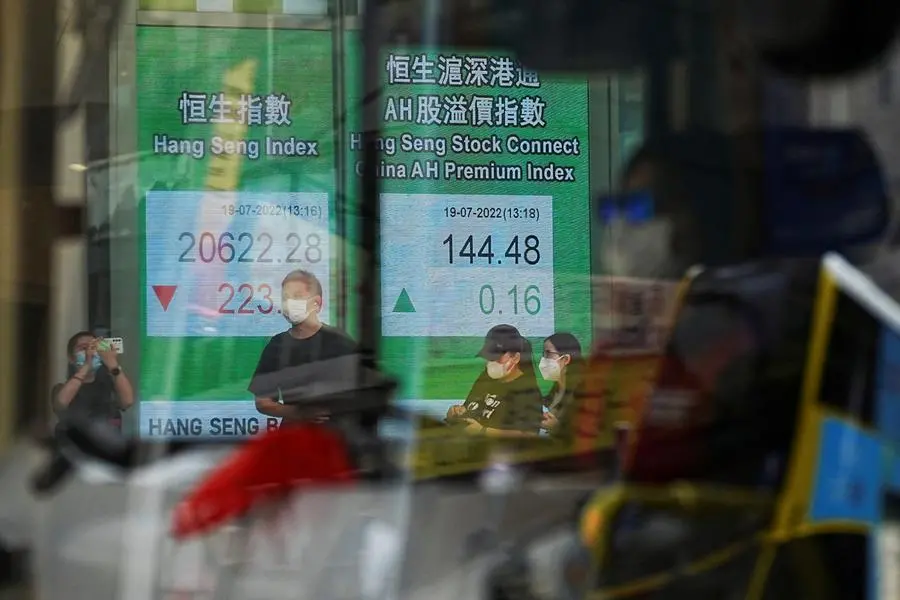PHOTO
LONDON - China's faltering consumer demand and factory activity sent copper and crude oil prices tumbling on Monday as investors worried about the condition of the world's second-largest economy.
Weaker U.S. stock index futures also sapped momentum on European bourses, with global shares pausing after four weeks of gains helped by hopes that peaking U.S. inflation will persuade the Federal Reserve to dial back on a hefty interest rate rise next month.
Gold slid but China's woes lifted the dollar.
S&P 500 futures and Nasdaq futures were down about 0.4% ahead of Wall Street's opening bell, with earnings from major retailers, including Walmart and Target , set to be scrutinised for any signs of flagging U.S. consumer demand.
The MSCI all-country index was little changed, halting a month-long advance which has helped reduce the benchmark's decline for the year to about 13%.
China's central bank unexpectedly cut key lending rates to revive demand as data showed the economy unexpectedly slowing in July, with factory and retail activity squeezed by Beijing's zero-COVID policy and a property crisis.
"China, I think, is a different situation than the rest of the world. They've got a self-imposed recession that they've created from the zero COVID policy," said Patrick Armstrong, chief investment officer at investment house Plurimi Group.
"I do think it's going to be Fed driven if there is another leg down in markets. Quantitative tightening, I think, will begin in earnest in September and that's going to withdraw liquidity from the market," Armstrong said.
Markets are roughly split over whether the Fed will hike by 50 basis points or 75 basis points in September.
The Fed will publish minutes on Wednesday from its last rate-setting meeting, but investor hopes of them showing the central bank beginning to pivot on rate hikes could be dashed.
"I don't think (Fed Chair) Powell is going to say that, I don't think the minutes are going to indicate that," Armstrong said.
In Europe, the STOXX share index of 600 leading companies was up 0.14% at 441.49 points, still down around 10% from a record high in January.
DOLLAR FIRM, CRUDE TUMBLES
Steady growth figures for Japan helped the Nikkei share average in Tokyo jump to its highest in more than seven months.
But the cut in Chinese interest rates failed to stop Chinese blue chips easing 0.13%, while the yuan and bond yields also slipped.
Geopolitical risks remain high with a delegation of U.S. lawmakers in Taiwan for a two-day trip.
The bond market still seems to doubt the Fed can manufacture a soft landing, with the yield curve remaining deeply inverted. Two-year yields at 3.25% are well above those for 10-year notes which were trading at 2.83%.
The safe-haven U.S. dollar rose on the back of disappointing Chinese data, with the dollar index against six peers up 0.5% to 106.25, consolidating near the middle of its range this month.
Some analysts expect the dollar to retest its highs rather than move lower.
"A dollar turn requires convincing evidence of a reversal in the Fed cycle, plus some attractive investment destinations overseas. Neither looks likely this year," ING bank said in a note.
The euro eased 0.6% against the dollar to $1.0193, after touching a one-week low.
Gold was down 1.5% at $1,773.
Benchmark copper on the London Metal Exchange was down 2.5% at $7,890 a tonne amid worries about demand in key consumer China.
Oil prices eased as China's disappointing data added to worries about global demand for fuel.
Brent tumbled 4.9% to $93.38, while U.S. crude fell 4.8% to $87.58 per barrel.
(Reporting by Wayne Cole; Editing by Ed Osmond and Hugh Lawson)




















